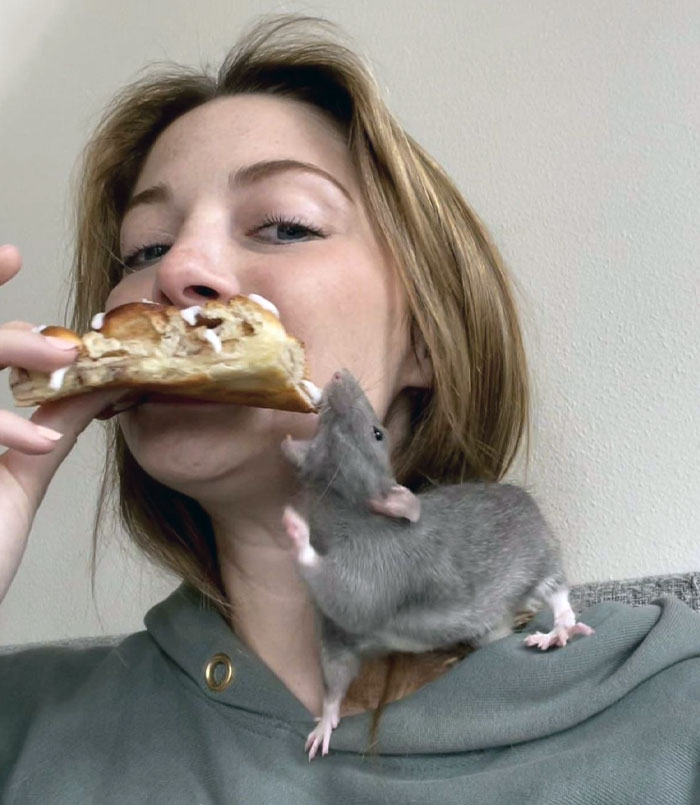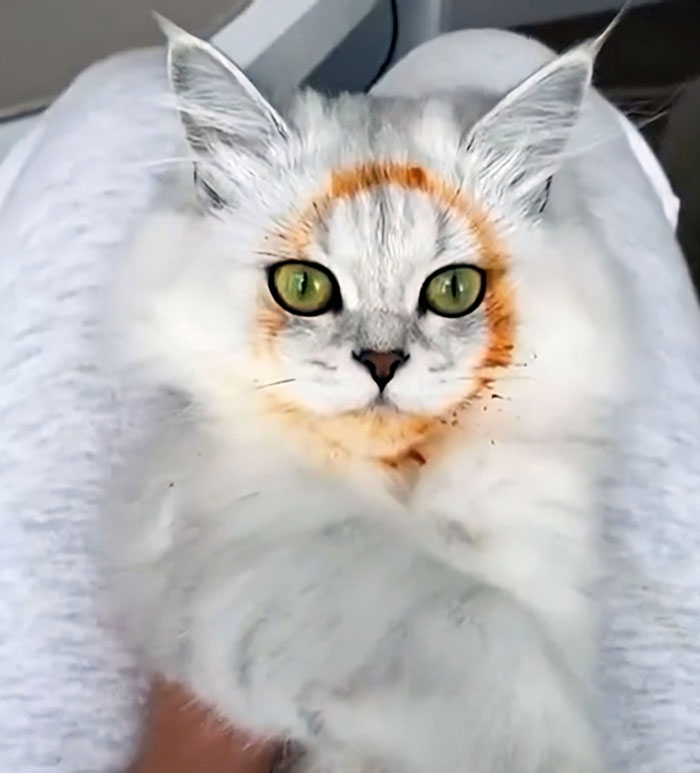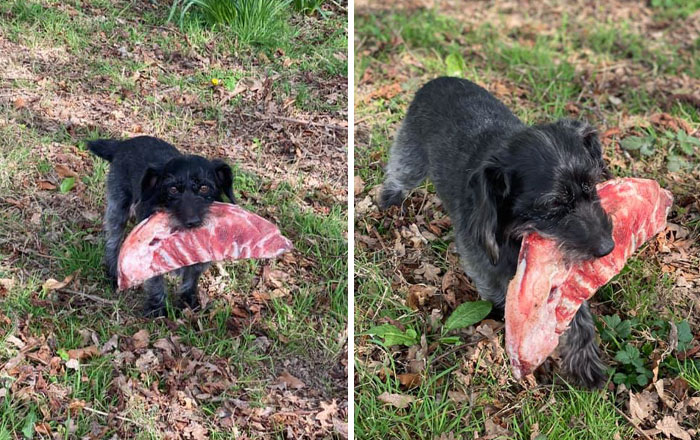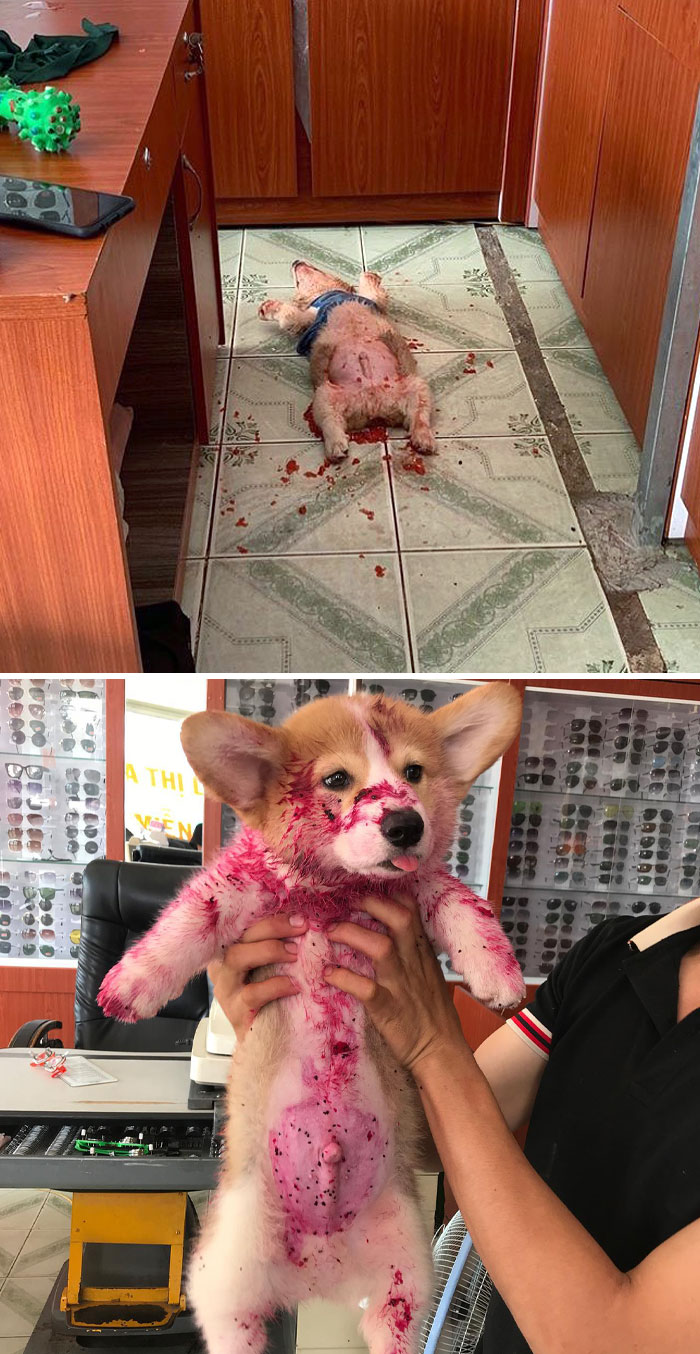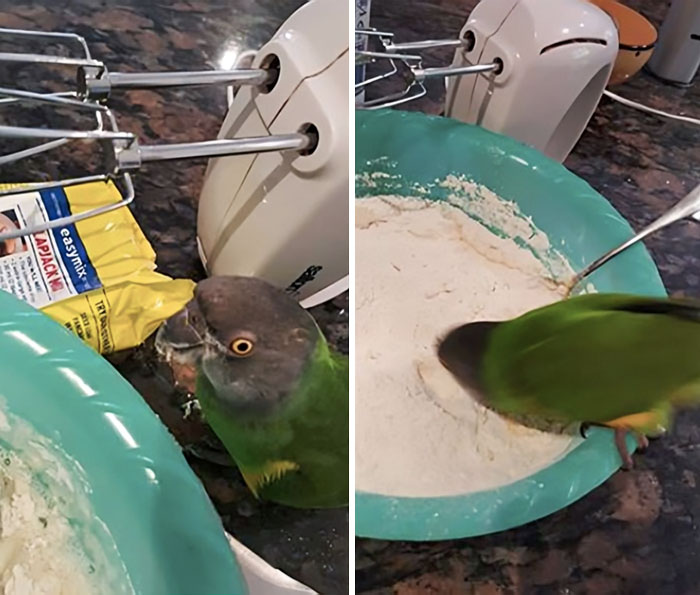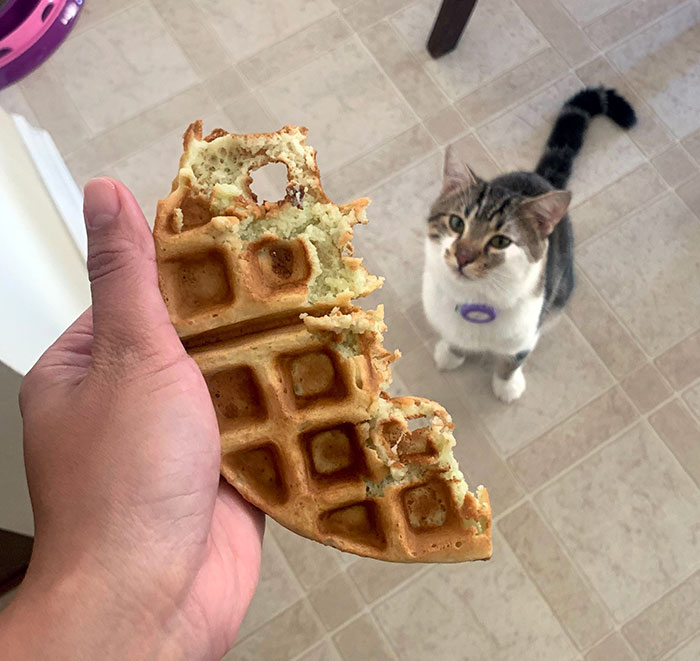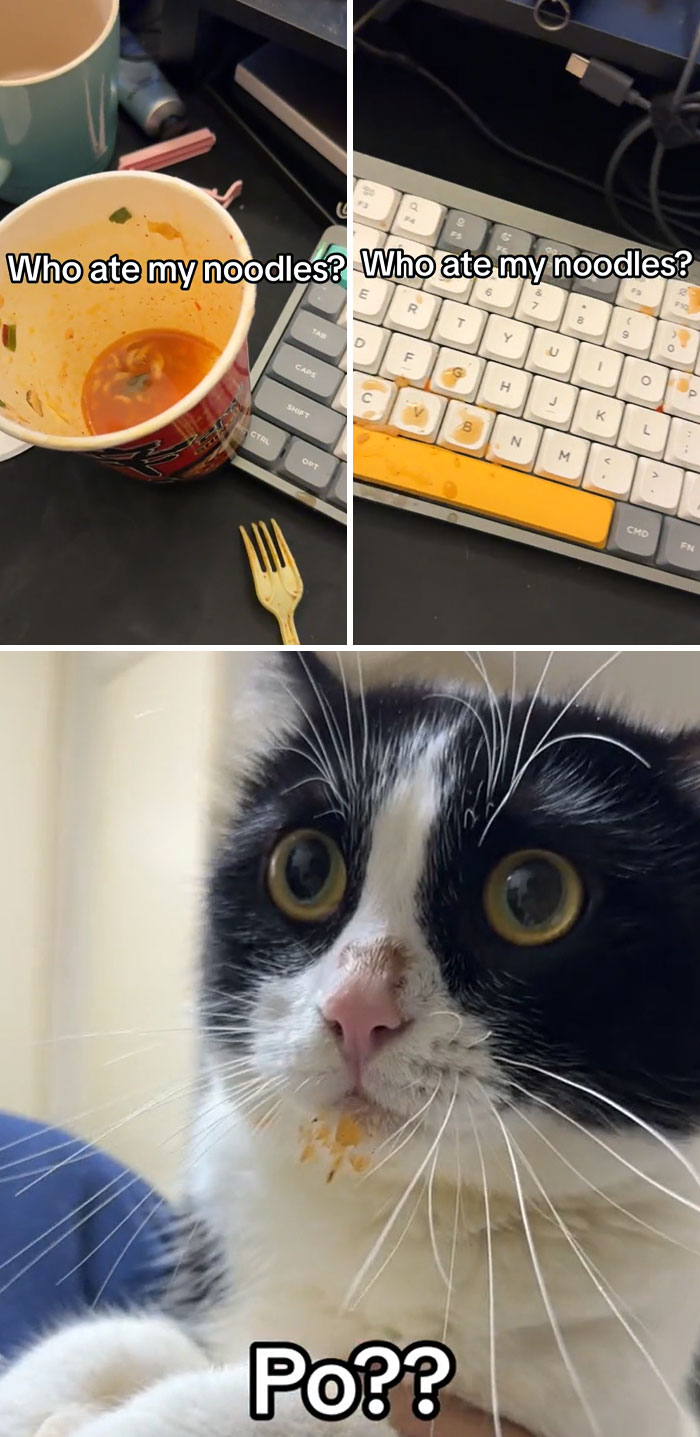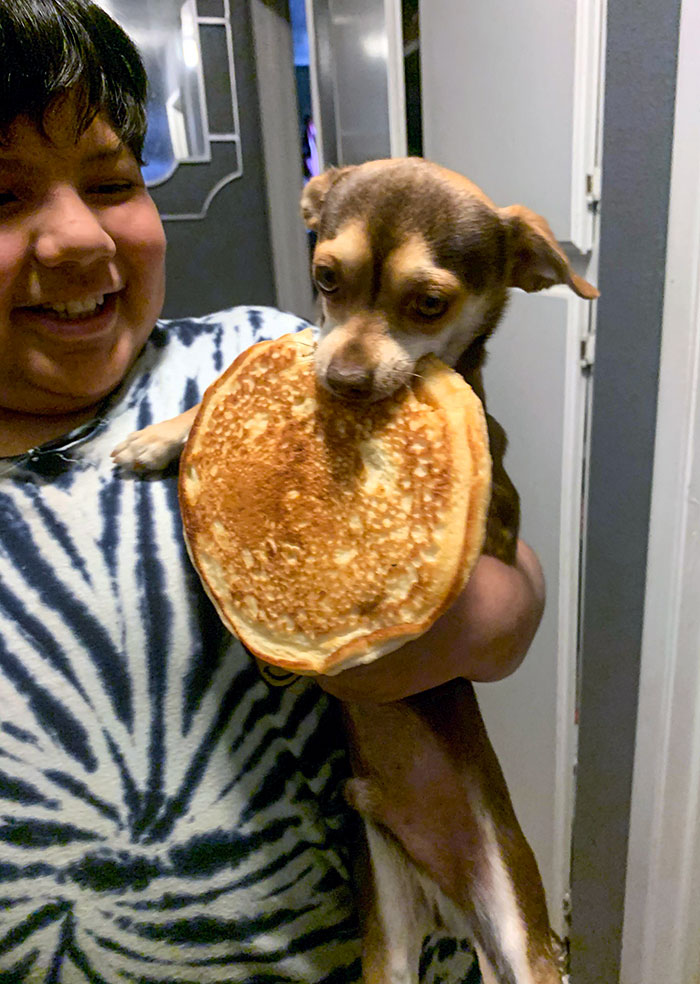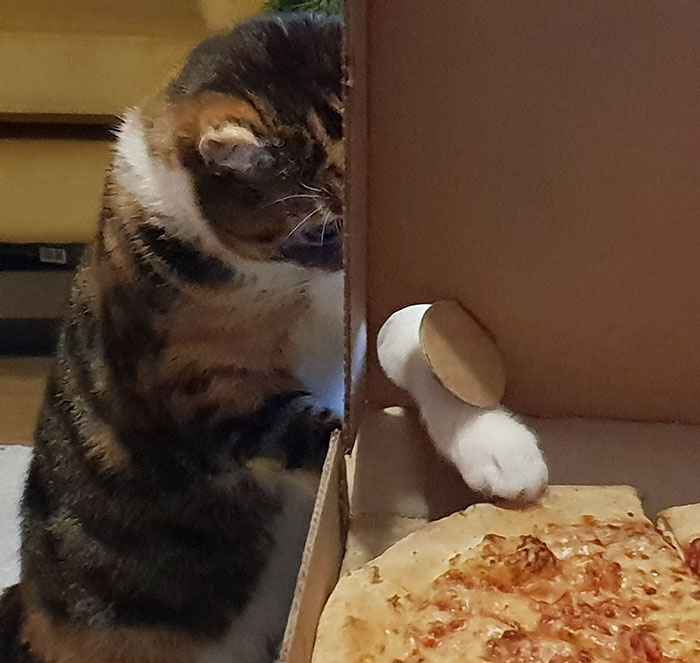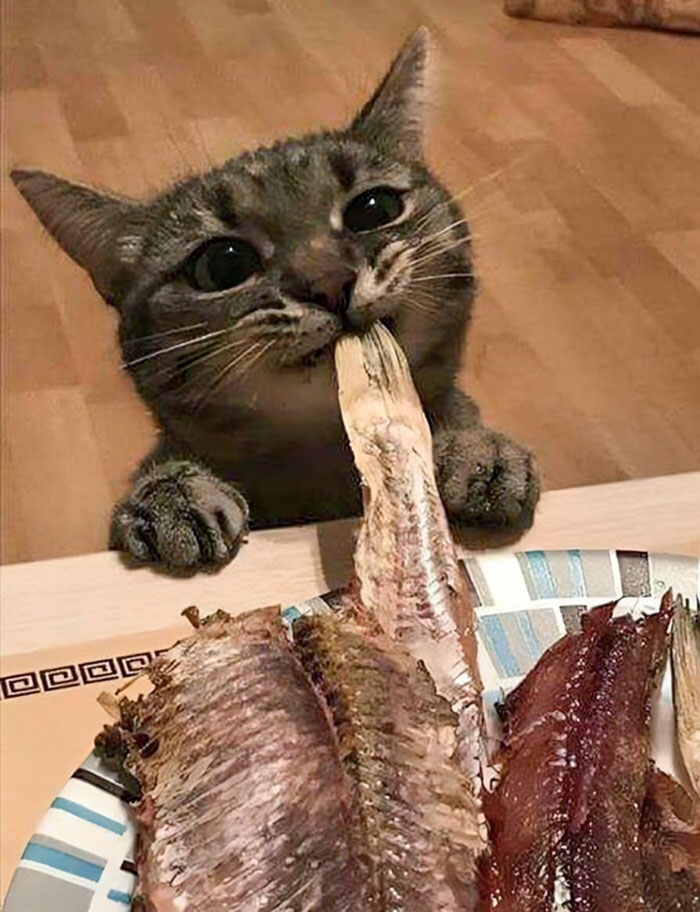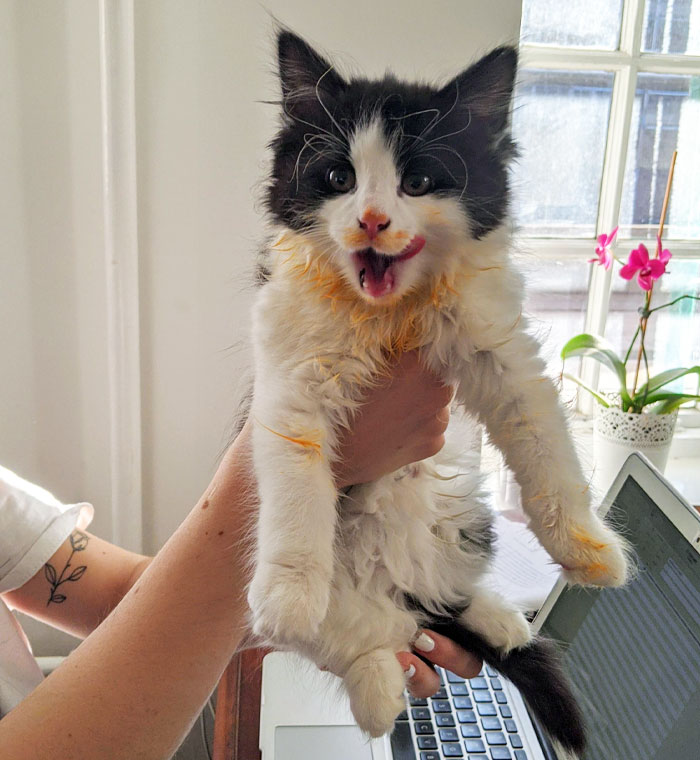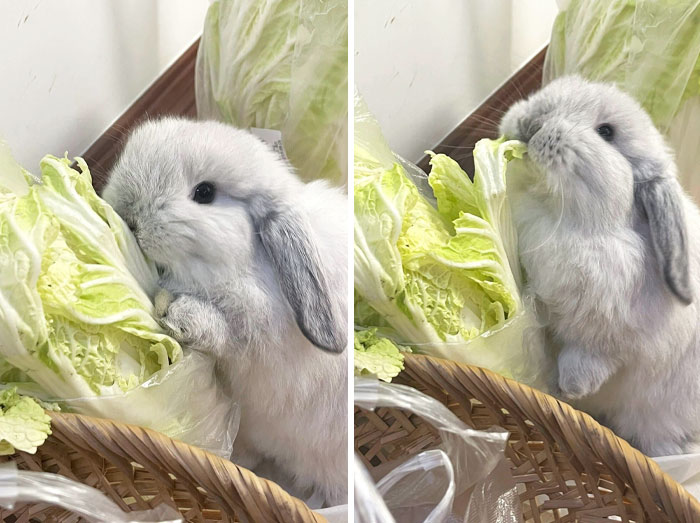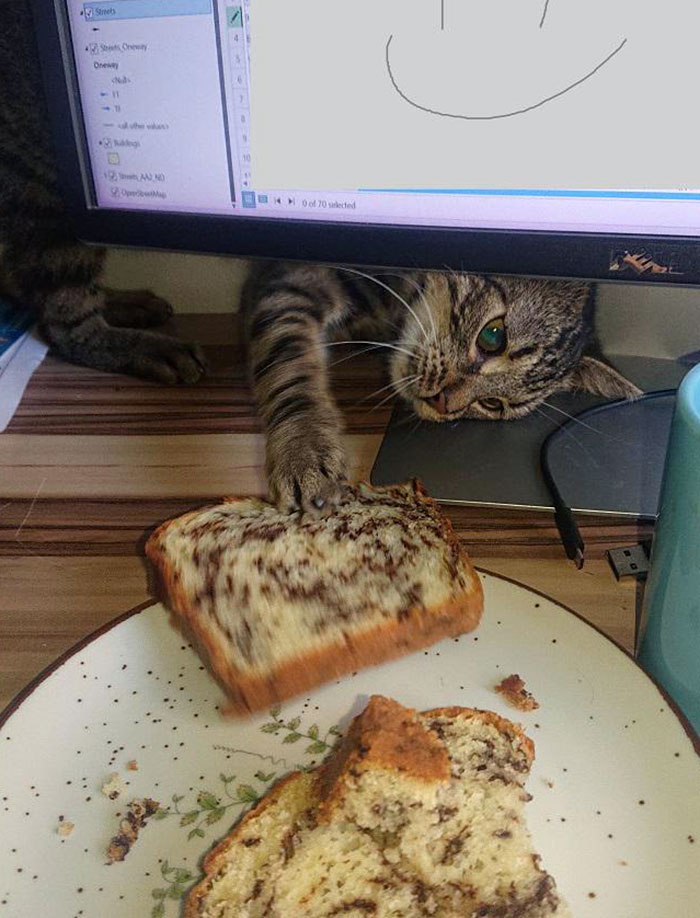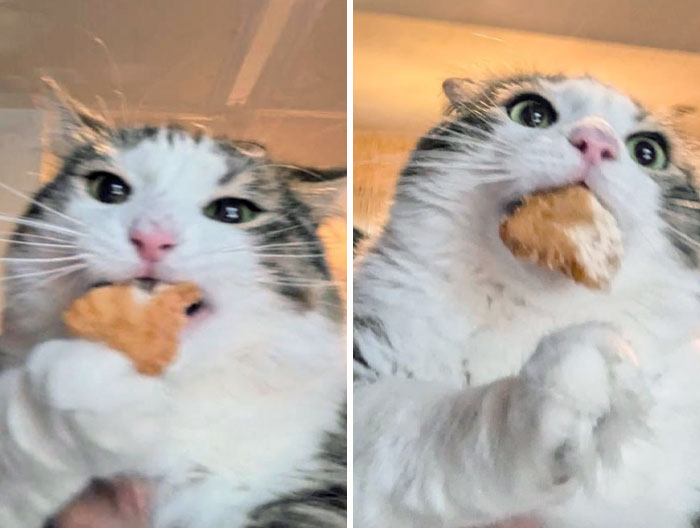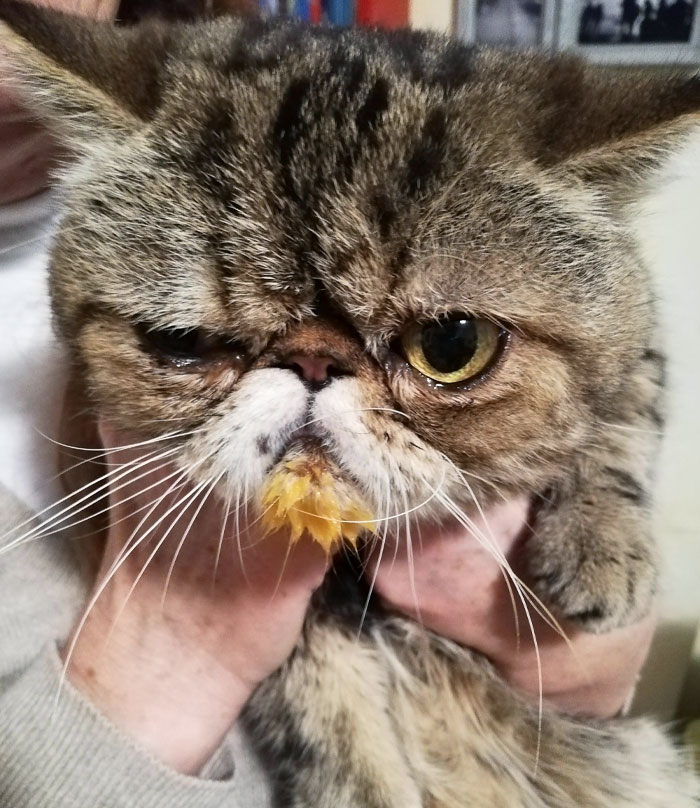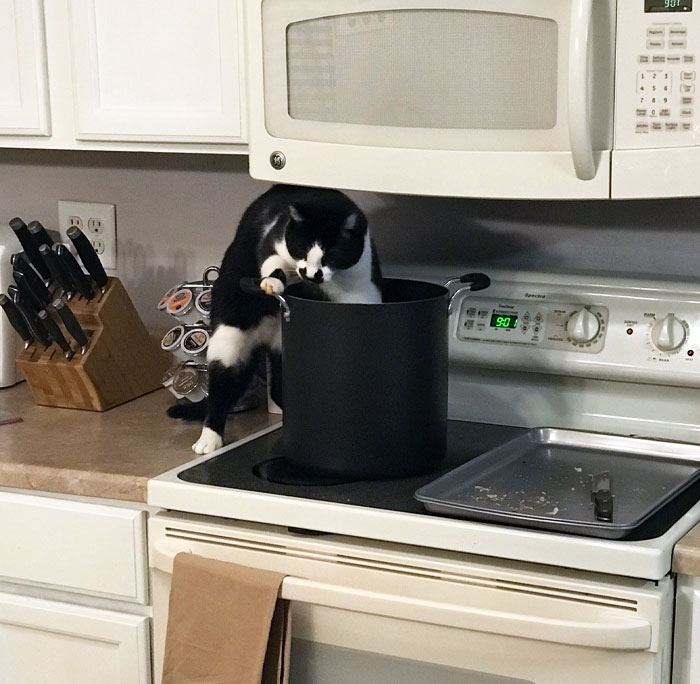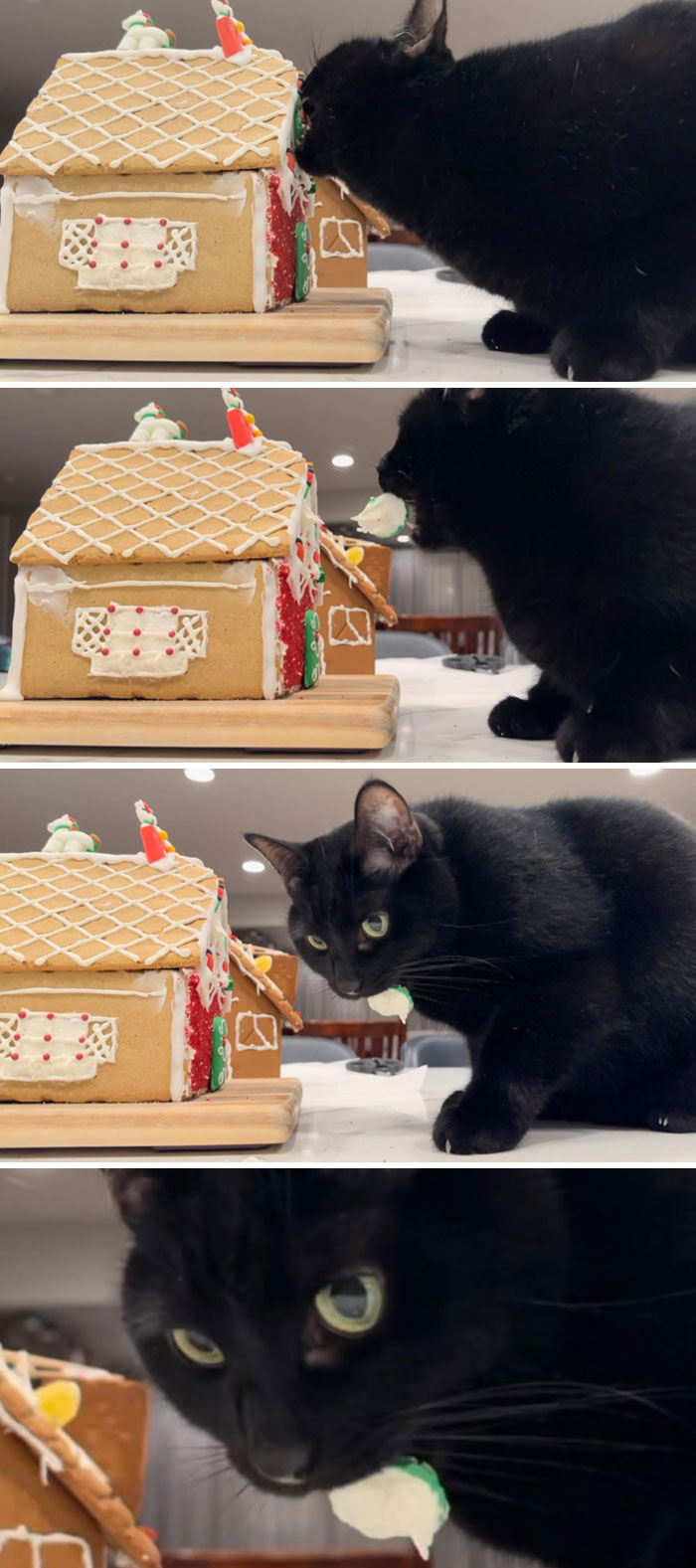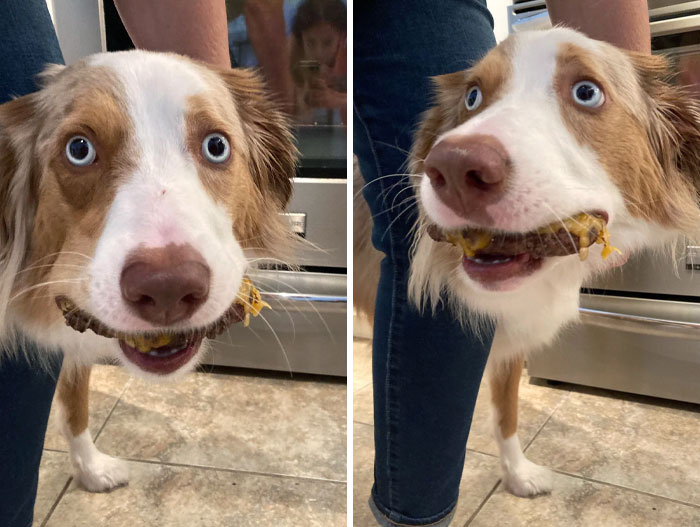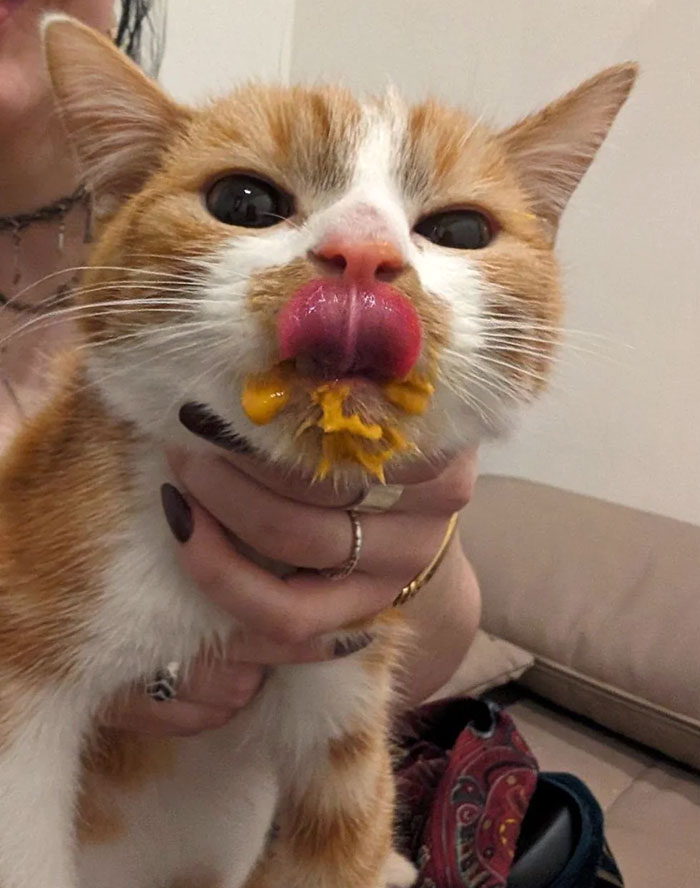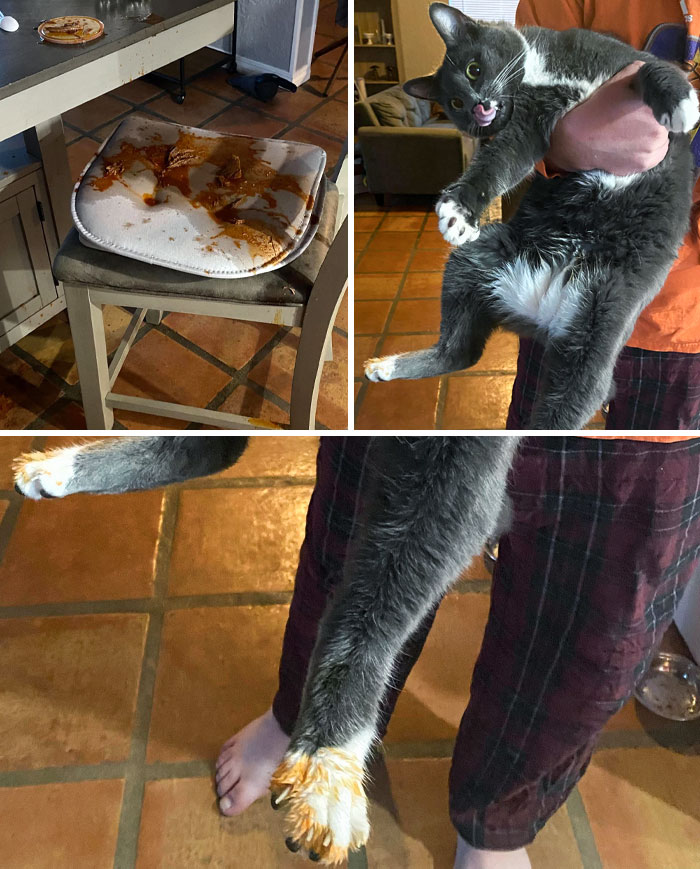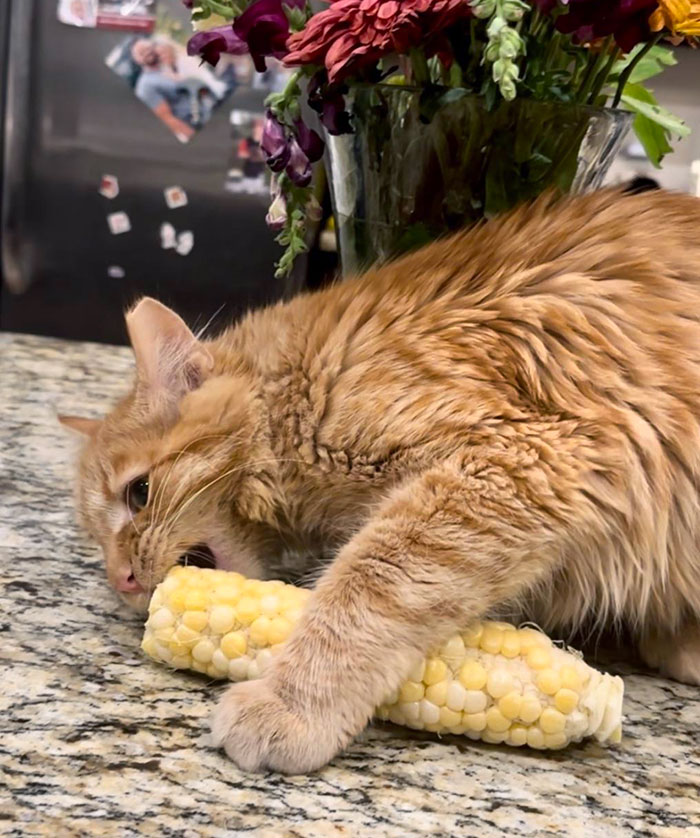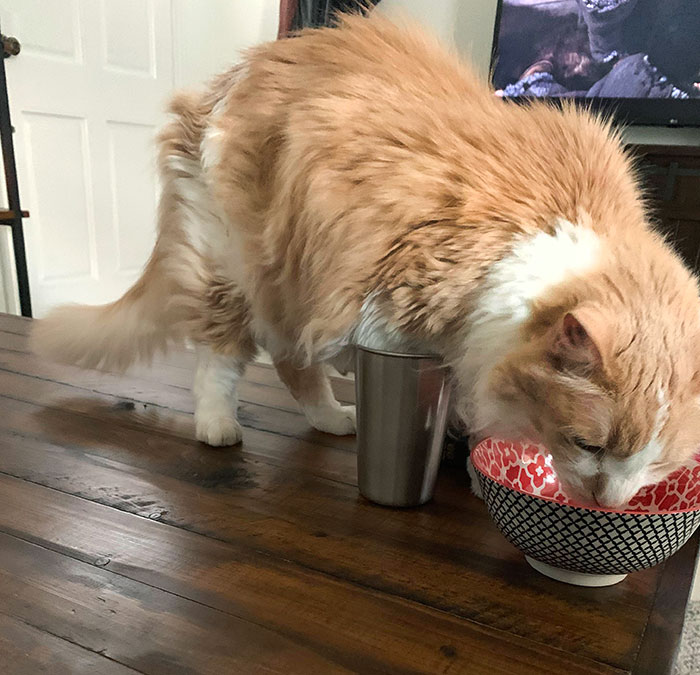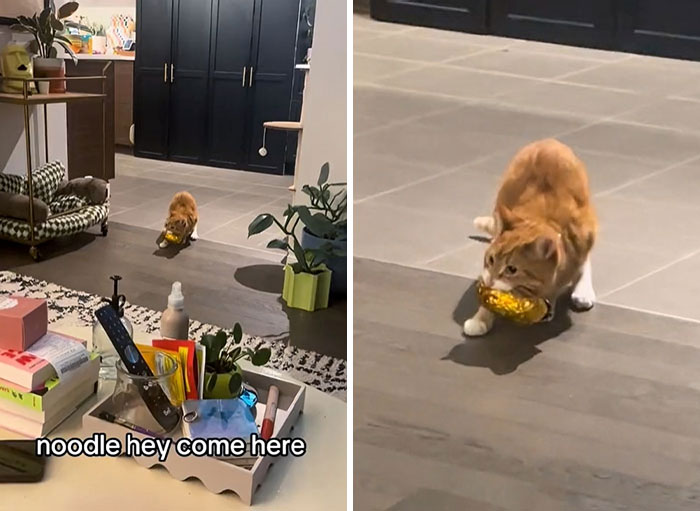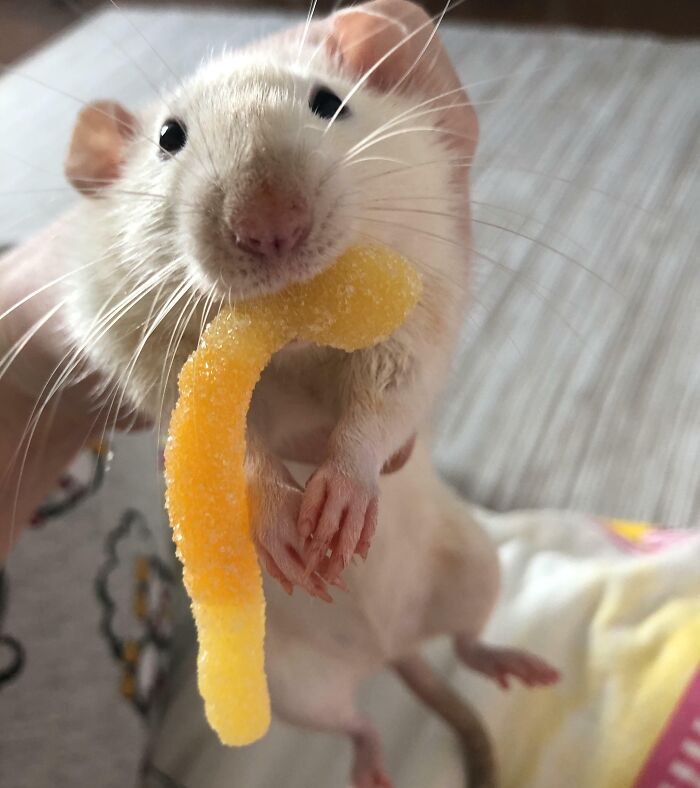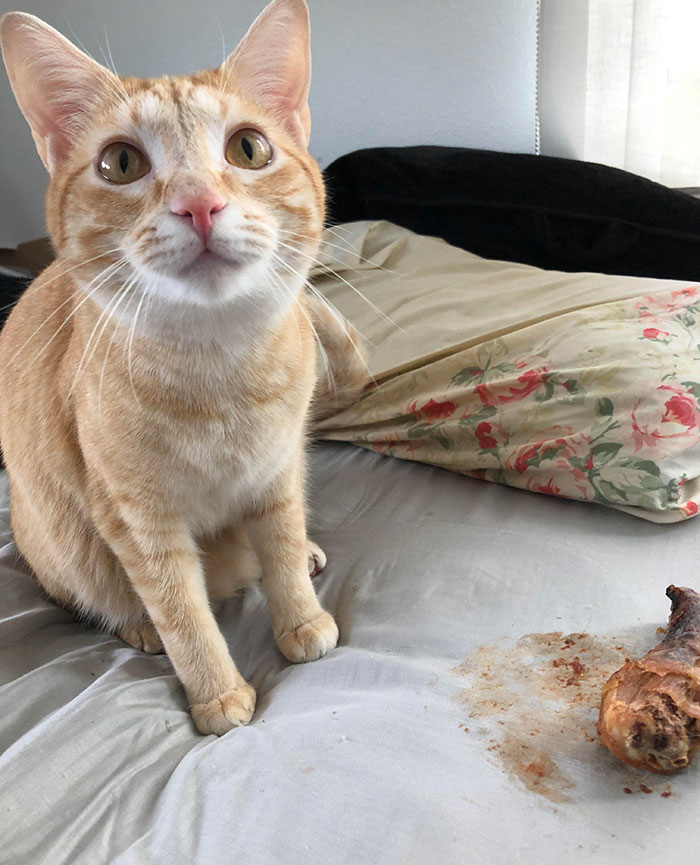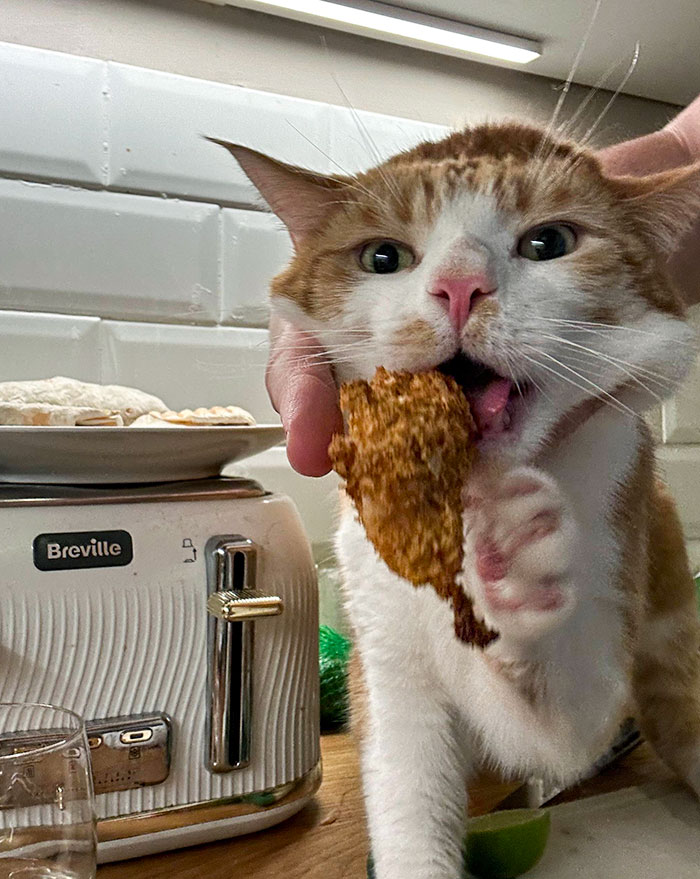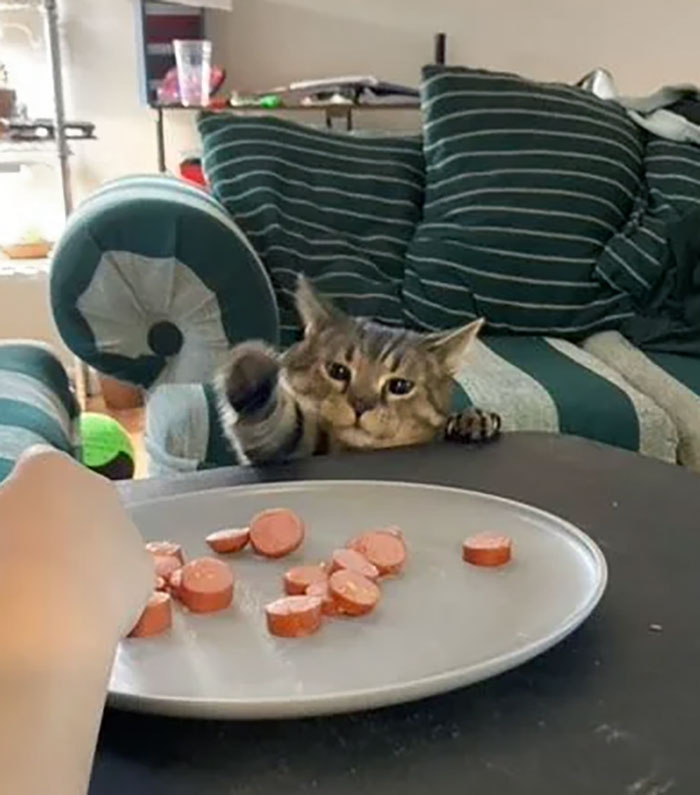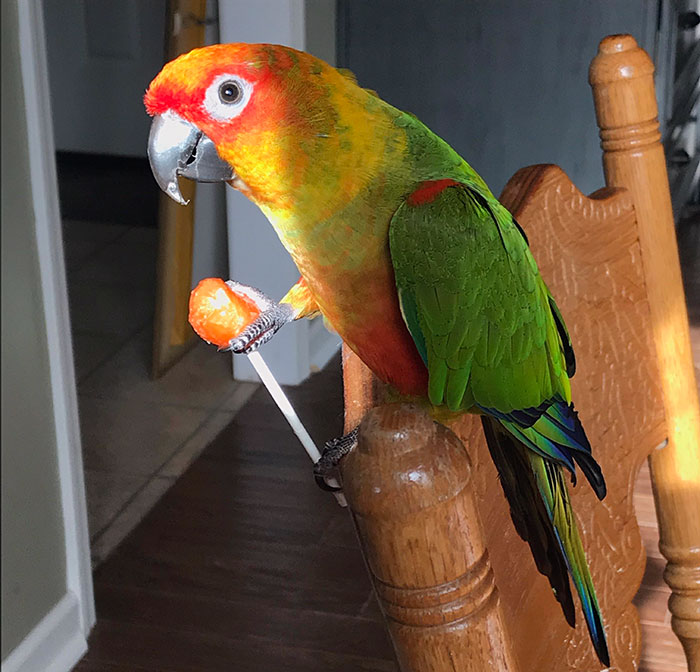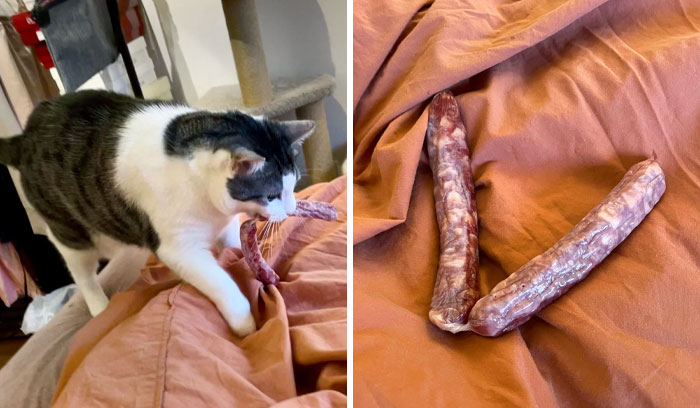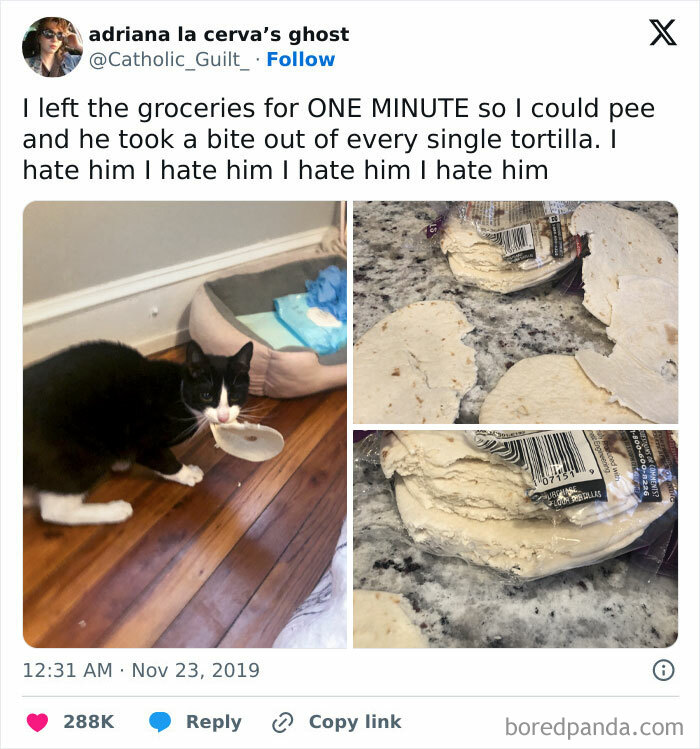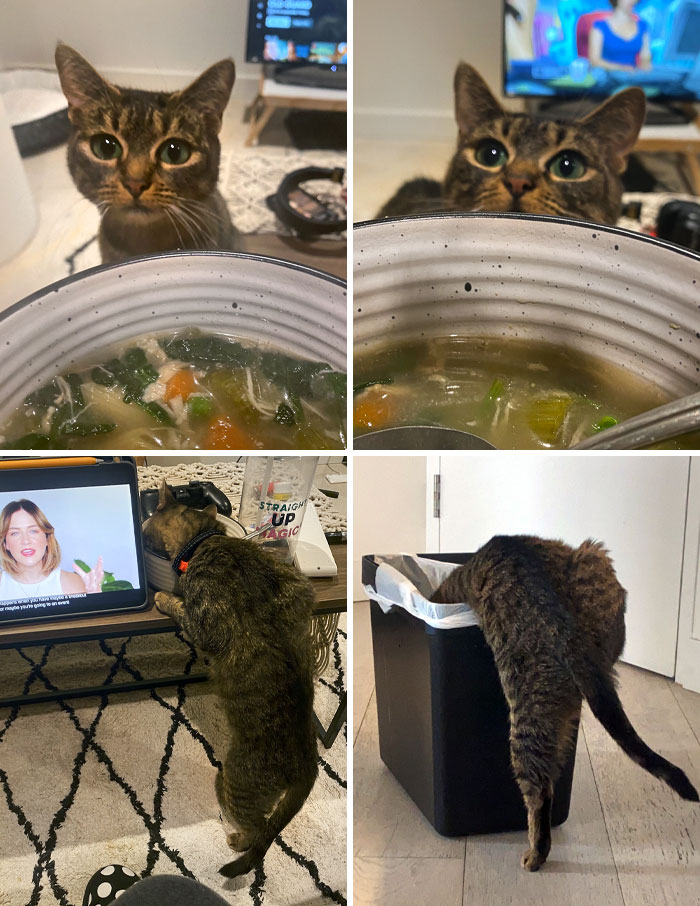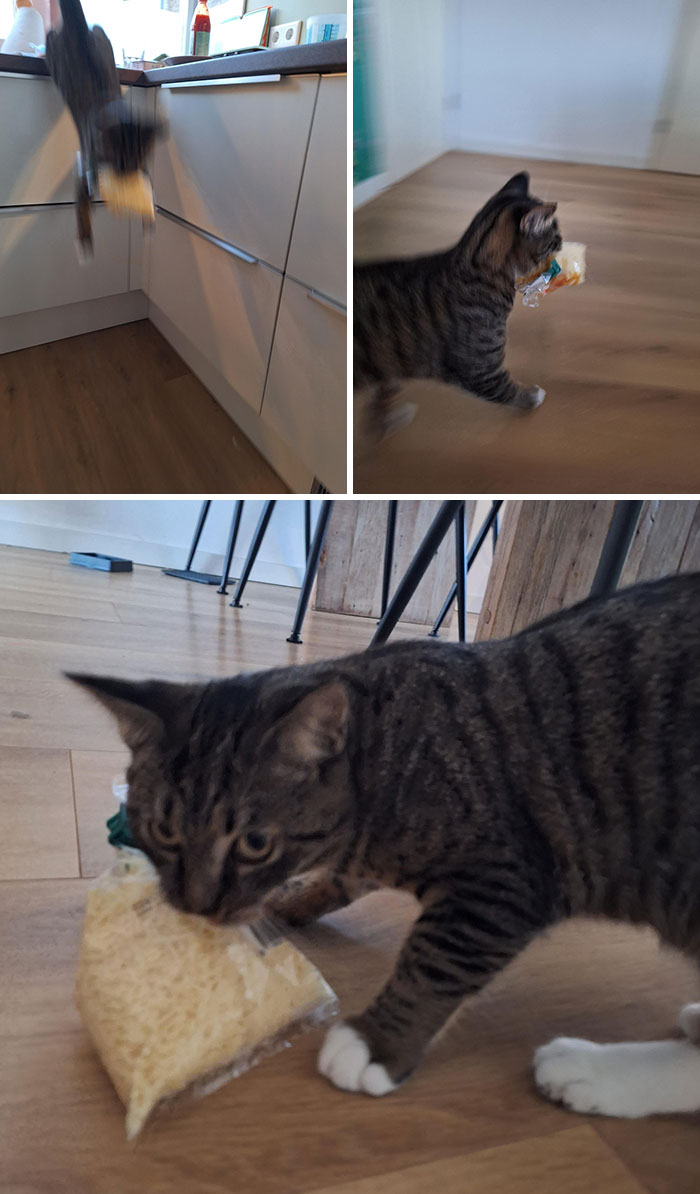But as it turns out, they’re not as slick as they think! We’ve gathered a collection of hilarious moments where these four-legged thieves were caught in the act, with guilt written all over their adorable faces. Check out the pics below and don’t miss our chat with pet behavior consultant Erica Peachey, who explains why animals resort to stealing food and what we can do about it! Many pet owners have caught their animals in the act, noticing the satisfied look on their faces after sneaking a bite. While it might seem like they’re being mischievous, that’s not exactly what’s going on. As Erica Poachey, a pet behavior consultant and animal training instructor, told Bored Panda, pets don’t really understand what stealing is. “Food is there, and if no one is actually eating it, it’s available,” she explains. “‘Stealing’ is our interpretation. We know the food wasn’t meant for them, but they don’t know that.” That said, these strong smell abilities don’t always lead to action. Depending on their personality or training, some pets are pickier eaters, while others might rummage through the garbage if given the chance. She also notes that size matters: “Bigger dogs are more likely to steal—they tend to eat more and can easily reach work surfaces.” Habit plays a role as well. “A dog who learns that tasty food is occasionally available will search harder the next time,” Poachey adds. Cats are also naturally designed to eat little and often. “So, if we’re only feeding them twice a day, they’re likely to go looking for something to munch on between meals,” she adds. “If they still have the food and we try to take it away, they don’t understand. They’re likely to become defensive—how else can they react? Then we end up with an animal who’s learning to guard what they see as important from us.” It’s also important to remember that many foods we eat can be highly dangerous for animals—like chocolate, raisins, bones, and certain nuts. “Teach your pet that it’s rewarding to come to you, to be with you, and to respond to you. Be someone they enjoy being around.” While these tips can certainly help, Poachey advises not to rely on them completely. What works for some pets might not work for others, and sometimes there could be underlying issues. When in doubt, it’s always best to consult a professional. Follow Bored Panda on Google News! Follow us on Flipboard.com/@boredpanda! Please use high-res photos without watermarks Ooops! Your image is too large, maximum file size is 8 MB.



